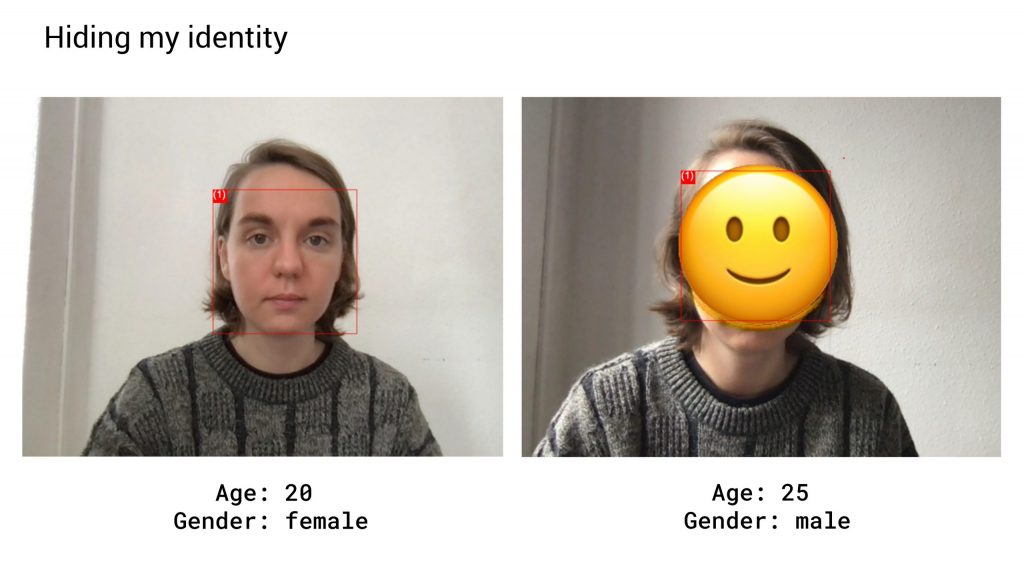Ilse Pouwels is one of the artists that responded to the expressions of interest call in September 2020.
How do we hide ourselves from algorithms but stay understandable to humans?
This piece intervenes in the unbalanced power relation between us, “users”, and our digital video conference softwares, in specific Zoom. Going back to the question, ‘why did we start using these tools in the first place?’… To communicate with each other while being apart. Which lead to my wonder, how can this need be fulfilled in a playful way while respecting users privacy? One of the options I see is creating hacks, a bottom-up approach, that give users the power to creatively express themselves.
The emoticon “face mask” is a playful approach to show your visibility. People understand that you are there, listening, thinking, talking, expressing yourself. The hand gestures actively allow you to use all the pixel in the grid to communicate in a fluid and creative way. The layer of emoticons on top of you video feed pollutes the video data that zoom is getting from you. It is now likely to classify you as a 25 year old happy man. The prototype build for this project is open source available. You can download the code and run it locally so no facial data is shared.
Through a virtual camera software, OBS, you can pipe this into any zoom meeting. With keyboard hot keys and the mouse you can control the filters and hand gestures. The power of this intervention does no only lie in individuals taking back their privacy but, we as a collective, can take a stance. When all of us are starting to use plug-ins like this the data companies like zoom are collecting on us will lose its value. This aims to trigger a reflection from the big tech companies and the role they play in society. Hopefully resulting in a reality where we don’t have to actively create hacks to have an equal relation with our technology.
You can access the Masquerade call source code here: https://openprocessing.org/sketch/1156193

Ilse Pouwels is a concept designer trying to take up challenging problems of merging the physical and digital for societal contexts with a ‹3 for exploring new technologies through playing prototyping. Currently she is working on her thesis at the Umeå Institute of Design as part of a masters program in Interaction Design. This project has an experimental core, creating hacks of designing things away so an empowering balanced relationship with our digital technologies can be formed. Before she spend time at Tellart and LEGO and obtained a BSc at the Eindhoven University of Technology.
For more information about Ilse, please go to www.ilsepouwels.nl